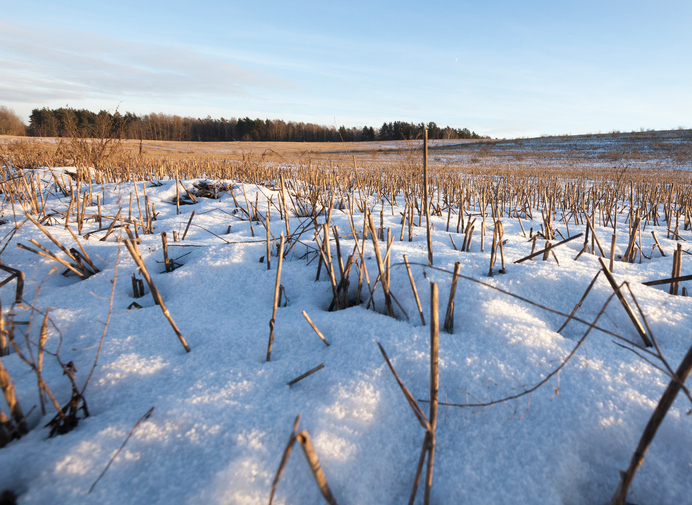Winter moisture could account for 25 per cent of annual moisture in some parts of Alberta
By Diego Flammini
News Reporter
Farms.com
Fields with good soil moisture levels prior to winter’s arrival can go a long way for farmers, according to Ralph Wright, head of agrometeorology with Alberta Agriculture and Forestry.
“Once the soil is frozen, obviously no water is going to get in there and a lot of it will just run off,” he told Farms.com on Friday. “Winter doesn’t greatly impact soil moisture, but it definitely helps, there’s no question about that.”
But the amount of snow that falls doesn’t necessarily translate into the same amount of moisture accumulated, according to Keith Gabert, an agronomist with the Canola Council of Canada.
“We say it typically takes about 10 inches of snow to amount to one inch of moisture,” he told Farms.com. “Snow has much less moisture content than rain, but it could have an impact on some fields.”
“But one good rain after seeding in the spring can change the whole story on a field.”
And farmers are taking steps to ensure their fields absorb as much moisture as they can.

Photo: ligora/iStock/Getty Images Plus
“Now that we’re zero-tilling and with stubble standing, the stubble catches more snow,” said Dale McQuid, a grain and cattle farmer from Vermilion, Alta. “If we get a lot of snow and a slow melt, the moisture can sink in and there’s a big benefit to that. The same goes for later, heavier snows like those in March and April.”
“When we were doing conventional tillage, we noticed we lost some of the moisture we gained from the winter.”